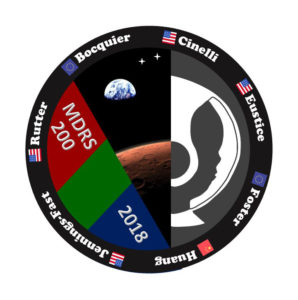
Mars Desert Research Station Mission Plan
Crew 200 – Mars Society International Crew
Dec 1st- 9th, 2018
Crew Members:
Commander: Dr. Ilaria Cinelli
Executive Officer: Oakley Jennings-Fast
Astronomer: Andrew Foster
Geologist: Dr. Jun Huang
Engineer: Antoine Bocquier
GreenHab Officer: Makiah Nicole Eustice
Health and Safety Officer: Dr. Lindsay Rutter
Mission Plan:
Crew 200 Mission Plan is an international mixture of science work, education and outreach. The Mission’s key values are:
1. International
2. Diversity
3. Education
Laid out here are the crew’s planned research objectives while at the MDRS:
1. Crew Projects
• Mapping emotions (by Commander, I. Cinelli):
Introduction: Emotions and feelings are altered by the environment, and isolation has been
shown to impact human behaviours. Arts is used in this project to communicate how a person could experience endurance in isolation using colours.
Rationale: Mapping emotions in isolation for envisioning endurance
Methods: Since young age, I. Cinelli associates words and numbers to colours, that she sees distributed in space with an order depending on their meaning. Emotions and feelings will be mapped throughout the adaptation in isolation. Acrylic colours will be used to map emotions on a flight-suits.
• Cement using Martian Regolith (Oakley Jennings-Fast Executive Officer)
Introduction: Objective is to test the strength of premix concrete (cement plus Earth soil as aggregate) and Portland cement plus local soil. Supplies set up in science dome and calculations started for weights of each material. Rationale: Important for understand building structures on Mars using available materials on the planet.
Methods: Mix various ratios of cement and local soil and water and test the strength with known weights until failure.
• Search for Extremophiles: (by Lindsay Rutter, Health and Safety Officer)
Introduction: Understanding what microbes survive the Mars-like environment around the MDRS can serve as a proxy to the type of microbes that may survive Mars itself. Identifying sample microbes can be achieved with commercial-made microscopes, but can also be achieved with homemade microscopes in the event that a more official microscope is not available.
Rationale: Microbe survival in Mars environments has important implications for planetary protection and crew immunity.
Methods: Build homemade microscopes from economical material, namely by removing the lens from laser pointers, attaching them to camera phones, and placing the sample on a flashlight covered by paper and plastic slides. Collect microbes from nearby the MDRS. Take photos of magnified microbes using both commercial and homemade microscopes.
• Energy Exchanges: Modeling and measurement of the thermal exchanges of the Habitat. (by Antoine Bocquier, Crew Engineer)
Introduction: Modeling the energy behaviour of the Habitat is key to optimize the use of available resources. By building an energy model of the Habitat that can be validated by in site measurements, it would be possible to adapt it to a Martian environment.
Rationale: A Martian station will need to be a “smart building” enabling to monitor resources use and perform failure detection and recovery. In MDRS, it will be useful to have a better assessment of the thermal power dissipated compared to the one generated.
Methods:
1) Build a simplified energy model of the Habitat using the bond graph method
2) Take measurements via an infrared camera of the Habitat and find out its parameters to refine the model
3) Compare software simulations with measurements to validate the model
4) Adapt the model to a Martian environment
• GreenHab Outreach (By Makiah Eustice, Greenhab Officer):
Introduction: Grow experiment at same time as a school in Canada
Method: Plant salad seed, check height each day
Rationale: Outreach to promote Mars exploration and green livinac
• Mars VR (By Makiah Eustice, Greenhab Officer)
Introduction: Develop and film walkthroughs of training scenarios
Rationale: Crew 197 didn’t complete these tasks.
Method: Decide on training scenarios, practice, and film (annotate)
• MDRS Digitization (By Makiah Eustice, Greenhab Officer):
Introduction: Understand sensors and electronic systems an find ways to implement “Smart Hab” system
Rationale: Mars would have smart systems that are connected, controlled, and archived for real time decision making
Method: Track all systems (water, power, environmental, telemetry) and find ways to improve
• Schools Outreach (By Andrew Foster, Crew Astronomer)
Introduction: Inspire the scientist and engineers of the future through a schools outreach project
Rationale: The colonization of Mars will involve people of many nationalities and backgrounds working together towards a common goal. Education and outreach is the foundation for this great project.
Method:
Engage school and community in Western Qatar with a variety of exciting projects:
1. School
1.1 Year 8 HAB design – HAB design questionnaire “Ask The Experts” (from PHSE lessons), to be carried out @ MDRS. Questionnaire results to be presented in PHSE lesson late December.
1.2 Year 7 Science club – Introduced science project list. Follow up questions to be sent before mission start.
1.3 Primary Yr 6: Light project, two experiments:
i. Measure and compare Naked Eye Limiting Magnitude at Dukhan and MDRS, using star chart for Cygnus.
ii. Construct a Cooking Oil Differential Photometer, measure and compare sunlight transmission at Dukhan and MDRS.
1.4 Primary (Yr 3-6) Question List – Compilation of all questions from classes
1.5 Oryx award students (yr 12): Climate change project- Assess energy supply and usage at MDRS, use as input for a sustainable energy project.
1.6 Outreach: Maintain blog site, send at least daily updates for all projects. (text / photo / video) during the mission.
2. Scouts
(Dukhan Troupe 33101) – Mission logo design competition complete. 2 x science experiments:
i. Biology / Greenhab food growth rate comparison “Cress Race” comparing GreenHab to local growing conditions.
ii. Human factors / space suit / EVA impact on heart rate using fitness monitor & app.)
Mission Astronomy (By Andrew Foster, Crew Astronomer)
Introduction: Carry out a mixed Astronomy program consisting of science measurements and astrophotography. Take some beautiful images and share them with the community.
Rationale: Utilise the great astronomy facilities at MDRS, demonstrate the capability of the MDRS observatories by contributing to the science community and delivering some beautiful astrophotography as a means to engage the public.
Method:
i. Science / Astrophotography – Differential Photometry w/ American Association of Variable Star Observers
ii. Cometary Coma Morphology imaging (Planetary Science Institute campaign)
iii. Wide field astrophotography campaign.
iv. Solar prominence time lapse imaging.
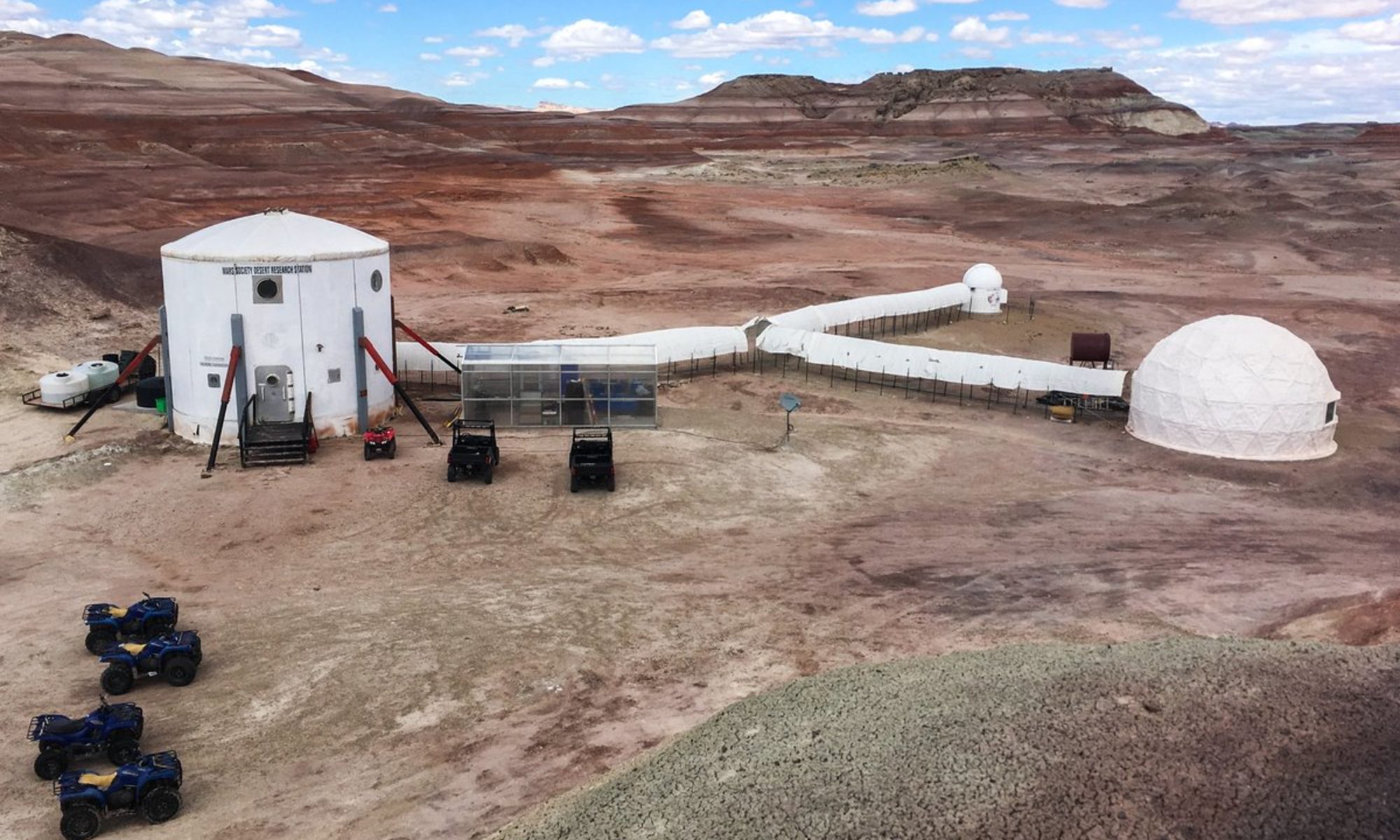
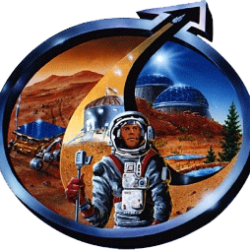
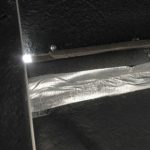
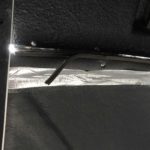
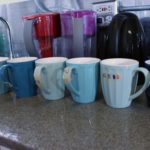
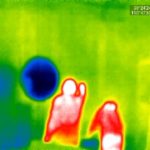
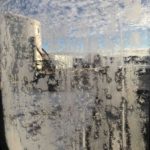
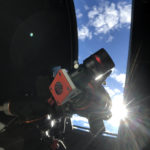
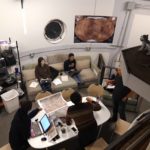
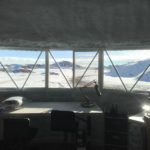
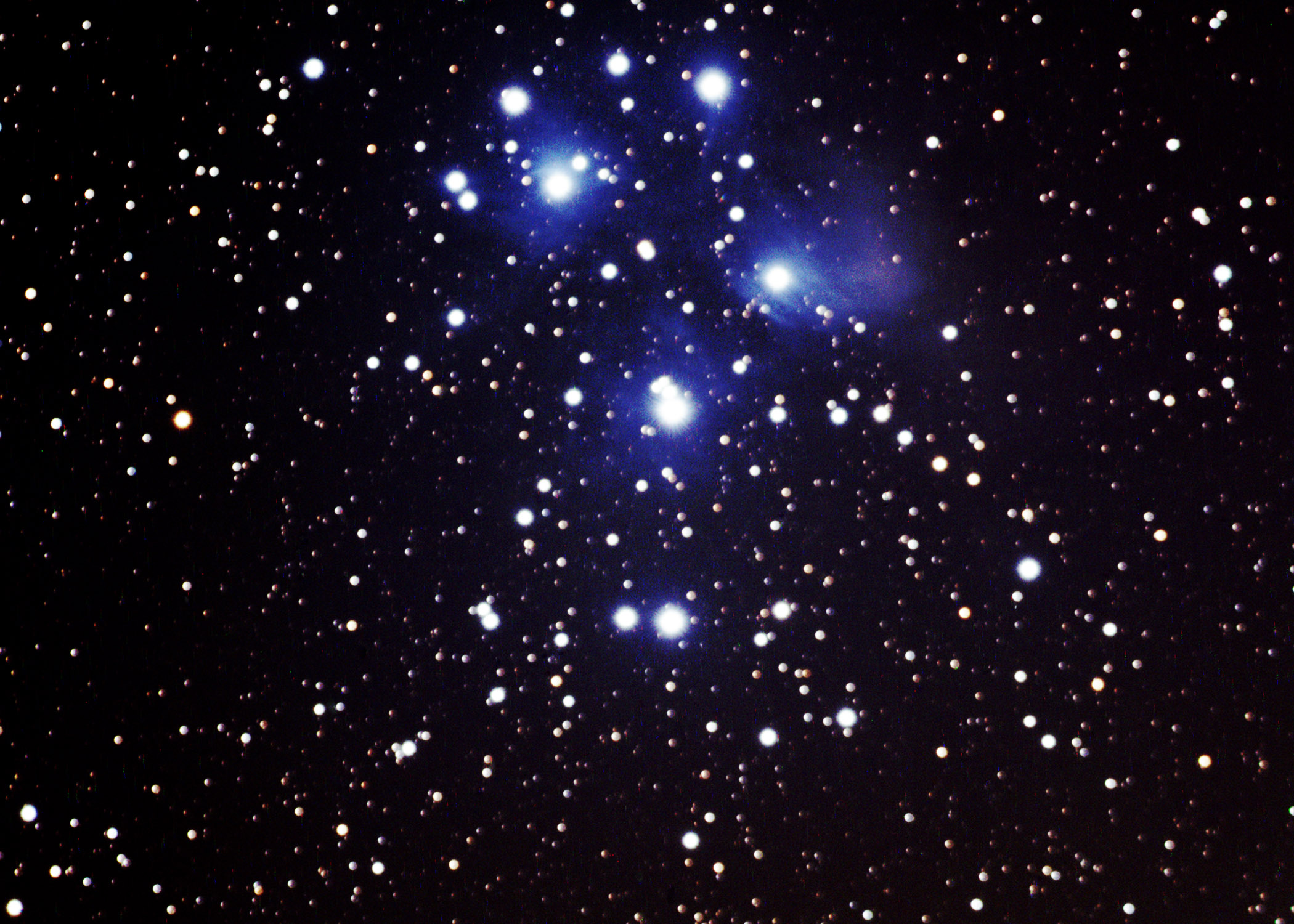
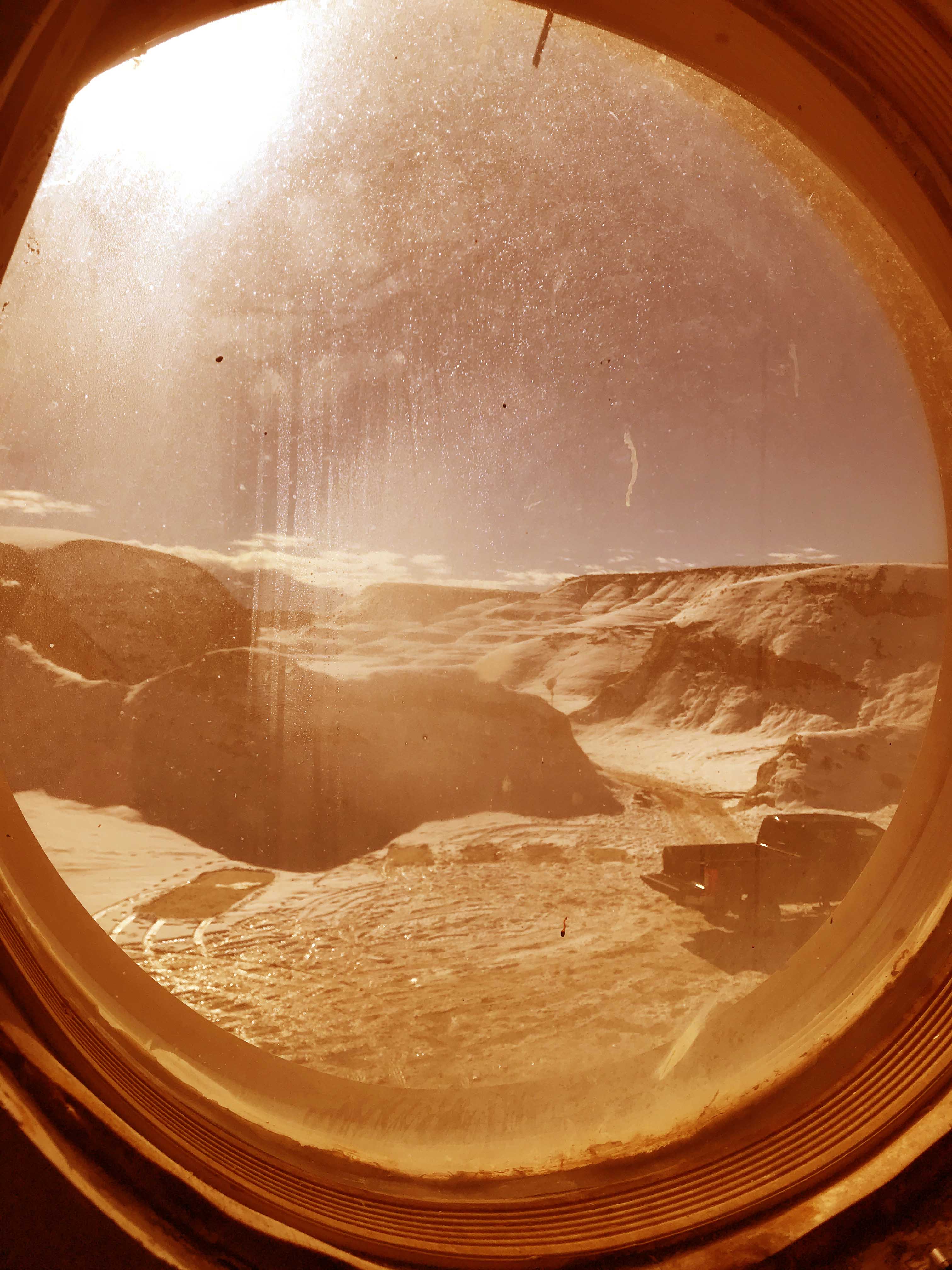

You must be logged in to post a comment.